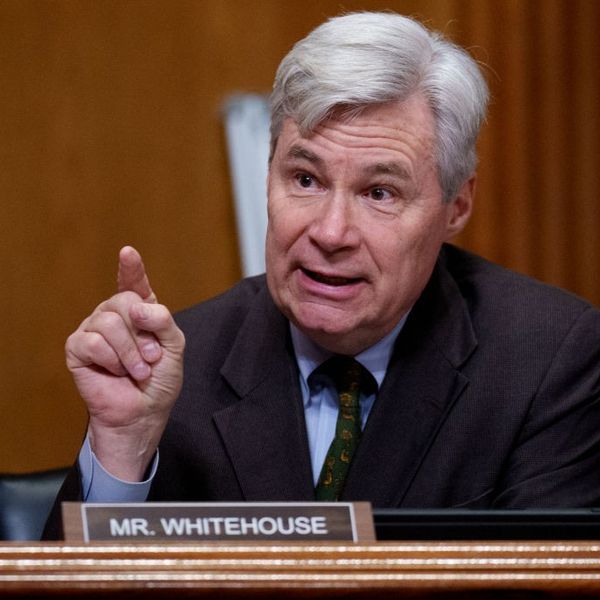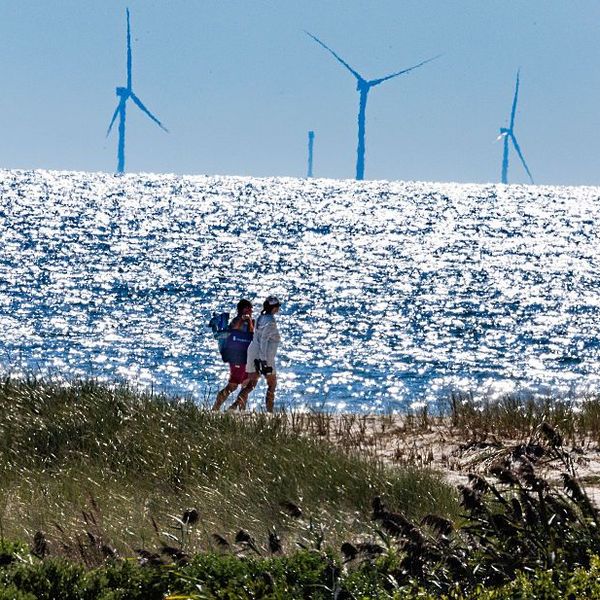Solar and Wind Will Be Cheaper Than Nukes by End of Decade: Greenpeace
New report shows nuclear-dependent France has historic opportunity, and enormous financial incentive, to move towards renewables
A new report by Greenpeace in France shows that renewable energy sources like photovoltaic solar and wind will be more affordable than nuclear power by the end of the decade.
As France rushes to make expensive upgrades to its aging nuclear plants in the midst of the ongoing Fuksuhima disaster in Japan, the report (published here in French) shows that maintaining the nation's dependence on atomic energy no longer makes financial sense.
According to Reuters, the Greenpace study comes a week before French Energy Minister Segolene Royal "presents the broad lines of a much-delayed framework energy law that aims to spell out how France will cut the share of atomic energy to 50 percent from the current 75 percent by 2025."
As the solar energy industry website PVTech reports:
Nuclear upgrades under new European Pressurised Reactor (EPR) standards would push nuclear prices to EUR133 per MWh (US$180 MWh), with EUR4.4 billion (US$6.0 billion) of investment per reactor required.
Increasing the costs and financial risk of EPRs are operating costs, wall investment, improving safety and erosion of profitability, the report claimed.
Compared to renewables nuclear will be more expensive than onshore wind (at EUR40-80 per MWh by 2018), and more expensive than solar and offshore wind power by 2020.
The report urges government to take control of nuclear power, future nuclear generation, and the financial future of the country.
________________________________
An Urgent Message From Our Co-Founder
Dear Common Dreams reader, The U.S. is on a fast track to authoritarianism like nothing I've ever seen. Meanwhile, corporate news outlets are utterly capitulating to Trump, twisting their coverage to avoid drawing his ire while lining up to stuff cash in his pockets. That's why I believe that Common Dreams is doing the best and most consequential reporting that we've ever done. Our small but mighty team is a progressive reporting powerhouse, covering the news every day that the corporate media never will. Our mission has always been simple: To inform. To inspire. And to ignite change for the common good. Now here's the key piece that I want all our readers to understand: None of this would be possible without your financial support. That's not just some fundraising cliche. It's the absolute and literal truth. We don't accept corporate advertising and never will. We don't have a paywall because we don't think people should be blocked from critical news based on their ability to pay. Everything we do is funded by the donations of readers like you. Will you donate now to help power the nonprofit, independent reporting of Common Dreams? Thank you for being a vital member of our community. Together, we can keep independent journalism alive when it’s needed most. - Craig Brown, Co-founder |
A new report by Greenpeace in France shows that renewable energy sources like photovoltaic solar and wind will be more affordable than nuclear power by the end of the decade.
As France rushes to make expensive upgrades to its aging nuclear plants in the midst of the ongoing Fuksuhima disaster in Japan, the report (published here in French) shows that maintaining the nation's dependence on atomic energy no longer makes financial sense.
According to Reuters, the Greenpace study comes a week before French Energy Minister Segolene Royal "presents the broad lines of a much-delayed framework energy law that aims to spell out how France will cut the share of atomic energy to 50 percent from the current 75 percent by 2025."
As the solar energy industry website PVTech reports:
Nuclear upgrades under new European Pressurised Reactor (EPR) standards would push nuclear prices to EUR133 per MWh (US$180 MWh), with EUR4.4 billion (US$6.0 billion) of investment per reactor required.
Increasing the costs and financial risk of EPRs are operating costs, wall investment, improving safety and erosion of profitability, the report claimed.
Compared to renewables nuclear will be more expensive than onshore wind (at EUR40-80 per MWh by 2018), and more expensive than solar and offshore wind power by 2020.
The report urges government to take control of nuclear power, future nuclear generation, and the financial future of the country.
________________________________
A new report by Greenpeace in France shows that renewable energy sources like photovoltaic solar and wind will be more affordable than nuclear power by the end of the decade.
As France rushes to make expensive upgrades to its aging nuclear plants in the midst of the ongoing Fuksuhima disaster in Japan, the report (published here in French) shows that maintaining the nation's dependence on atomic energy no longer makes financial sense.
According to Reuters, the Greenpace study comes a week before French Energy Minister Segolene Royal "presents the broad lines of a much-delayed framework energy law that aims to spell out how France will cut the share of atomic energy to 50 percent from the current 75 percent by 2025."
As the solar energy industry website PVTech reports:
Nuclear upgrades under new European Pressurised Reactor (EPR) standards would push nuclear prices to EUR133 per MWh (US$180 MWh), with EUR4.4 billion (US$6.0 billion) of investment per reactor required.
Increasing the costs and financial risk of EPRs are operating costs, wall investment, improving safety and erosion of profitability, the report claimed.
Compared to renewables nuclear will be more expensive than onshore wind (at EUR40-80 per MWh by 2018), and more expensive than solar and offshore wind power by 2020.
The report urges government to take control of nuclear power, future nuclear generation, and the financial future of the country.
________________________________

